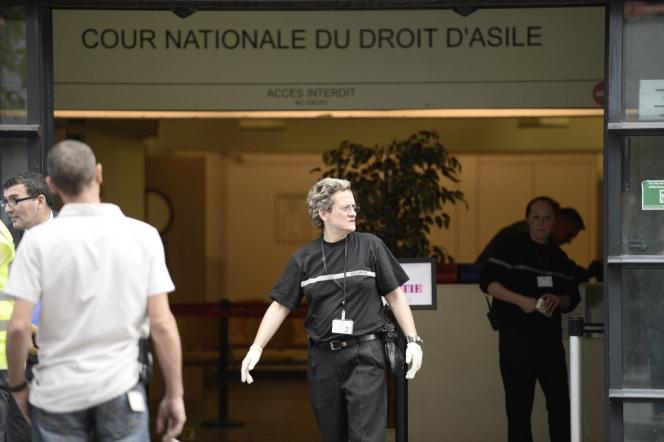The National Court for the Right of Asylum (CNAD) rejected the request for protection from a Chechen, in a decision made public on Thursday 20 July. The 27-year-old said he feared being forcibly conscripted into war against Ukraine if he returned to his country. The court did not believe his story or the risks he invoked. But it took advantage of the applicant’s case to refine and unify its case law on Russian deserters or rebels – those who want to escape mobilization.
“The Chambers of the Court have so far rendered divergent decisions, explains Sylvain Saligari, lawyer in immigration law and counsel for the applicant. Applications for protection were rejected on the pretext that the applicant had not been convincing about his conscientious objection. Or because the judges had a restrictive vision of the military reserve. It shouldn’t be happening anymore. » Several refusals of protection consulted by The world show that some judges considered, for example, that a Russian who had not done his military service or who had no military specialty could not be mobilized. Other refusal decisions criticized the applicants for not sufficiently developing “the existence of deep convictions” against the war in Ukraine.
The CNDA now considers that Russians who refused to participate in the war in Ukraine can obtain refugee status since joining the army would make them susceptible to committing war crimes. It thus recalls in its decision – rendered on the occasion of a large panel composed of nine judges – that the Russian army notably perpetuated widespread attacks on civilians, rapes or the illegal deportation of Ukrainian children.
The Court then considers that the mobilization decreed by the Russian President, Vladimir Putin, on September 21, 2022, may concern a large part of the population. Indeed, the military reserve includes all male citizens aged 18 to 50 (for soldiers) with the exception of invalids. Besides, “mobilized reservists do not have access to alternative civilian service” and defaulters face prison terms and other informal penalties. Moreover, if the judges consider that the scale of the mobilization is “difficult to assess” and the objective announced by the Russian authorities of 300,000 reservists subject to caution, it is certain that “thousands of new recruits were sent to the front line almost immediately after receiving their mobilization order, without going through a medical commission and with almost no training or equipment, to go and fight”.
You have 54.75% of this article left to read. The following is for subscribers only.
